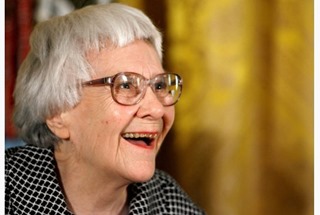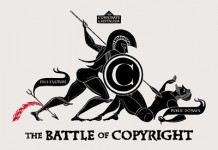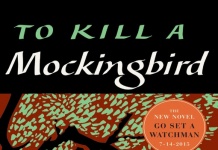 The sad news just broke this morning that Harper Lee, author of the 1960 novel To Kill a Mockingbird and its draft version Go Set a Watchman published last year, has passed away at the age of 89. After growing up in Alabama, Lee lived in New York for several decades, eventually moving back to Alabama in 2007 after a stroke.
The sad news just broke this morning that Harper Lee, author of the 1960 novel To Kill a Mockingbird and its draft version Go Set a Watchman published last year, has passed away at the age of 89. After growing up in Alabama, Lee lived in New York for several decades, eventually moving back to Alabama in 2007 after a stroke.
It’s always terrible to lose another great, creative mind. Other sites are doing a much better job eulogizing her than I could, so instead I’ll turn to a couple of other thoughts this death inspires. For one thing, given her health was clearly failing, it again makes me wonder just to what extent her decision to permit publication of Go Set a Watchman really was the product of a fully-rational mind, and whether she was being taken advantage of in her declining years. The story behind its discovery was a little suspicious, and subsequently critics felt the book was a lower-quality draft being deceptively marketed by a publisher who badly needed the money.
But the thing that invariably comes to mind whenever another author dies is that this starts the countdown clock on the most-of-a-century of waiting before their works enter the public domain in the United States. Under the copyright law Walt Disney bought and Sonny Bono implemented, authors’ works now stay under copyright for 70 years after they die. Few people alive today will be around when that happens. Even before Bono’s law, To Kill a Mockingbird would have remained under copyright until 2035—whereas under the laws in effect when it was originally written, To Kill a Mockingbird would have entered the public domain in 1988 at the latest.
It seems unlikely this will change without some kind of dramatic shift in the power balance in our society. There are just too many moneyed interests with too much at stake in protecting old copyrights, and they’ve managed to muddle the waters enough to get people to believe copyright is about protecting creators’ right to make money rather than “promoting the progress of science and the useful arts.” But I can always hope something will surprise me.
[Correction: I had previously given the copyright term as 95 years after death, but someone pointed out I was looking at the wrong portion of the copyright term listing and it should be 70. Not that it makes a whole lot of difference either way; I certainly won’t be around to appreciate it unless I live to 112 years old.]

































We’ll have to see how Harper Lee’s literary estate is probated, but since much of her income from royalties has gone to literacy programs, I’m not upset at how long her copyright lingers. It’s those corporate copyrights that pay seven-figures salaries to executives who had nothing to do with original creation that irritate me. It’s mooching on the labors of others.
Oh, and Congressman Sonny Bono didn’t “implement” the law. He was one of the sponsors. He died from a skiing accident some nine months before it passed. Mentioning him provided the appearance of moral cover for a law that many believe believed was simply bought by Disney to protect its ownership of Mickey Mouse.
We should consider ourselves lucky. Bono himself want copyright to last forever. Wikipedia has an article giving a lot of the details:
https://en.wikipedia.org/wiki/Copyright_Term_Extension_Act